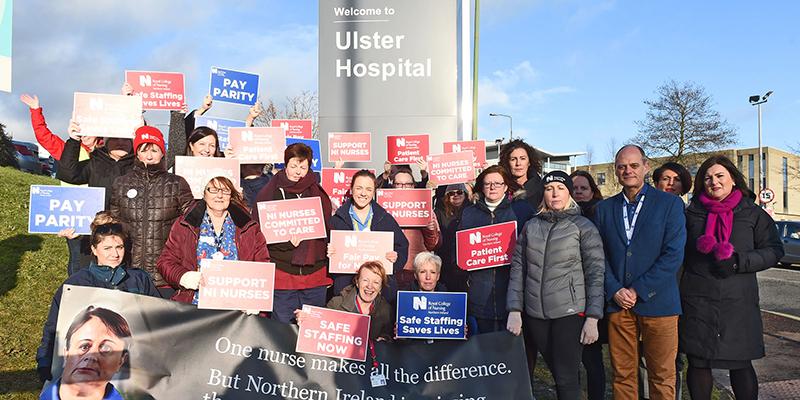THE DIRECTOR of the Royal College of Nursing (RCN) says she has not had enough reassurance about safe staffing to propose an end to strike action in Northern Ireland.
Health workers in NI have been staging industrial action in protest against pay and staffing.
Trade unions had a ‘positive’ meeting with Health Minister Robin Swann on Tuesday, who offered £30m to restore pay parity withhealth workers in the rest of the UK.
But the RCN’s Pat Cullen warned ‘there is still work to do today’.
She said it was ‘deeply concerning’ that after the meeting she spoke to departmental officials who said that there ‘may be difficulties with the minister committing to the issues of safe staffing’.
Nurses are due to strike again on three days next week – Monday, Wednesday and Friday.
Cullen said she could not suspend planned strike action for next week unless there is ‘a formal commitment on safe staffing that will deliver for patients and nurses’.
‘At this point in time, I do not have enough detail and reassurance that I could put to the Northern Ireland board and propose that we suspend our strike action,’ she said.
The Northern Ireland Public Service Alliance (NIPSA) union said industrial action ‘will remain in place until this dispute is resolved to the satisfaction of members’.
On Tuesday, the unions expressed concern that the money is coming from Stormont’s finances and not additional funding from Westminster.
They are expected to respond to the pay offer today.
Nurses and healthcare workers began industrial action over staffing levels and pay, which does not rise in line with healthcare workers in Scotland, England and Wales.
On Tuesday, Finance Minister Conor Murphy said he recognised the updated pay offer was coming from within existing Stormont finances, but said it was not a case of ‘robbing Peter to pay Paul’.
He said as the executive had not yet been able to tie down funding commitments from the British government, they had ‘dipped into existing finances’.
